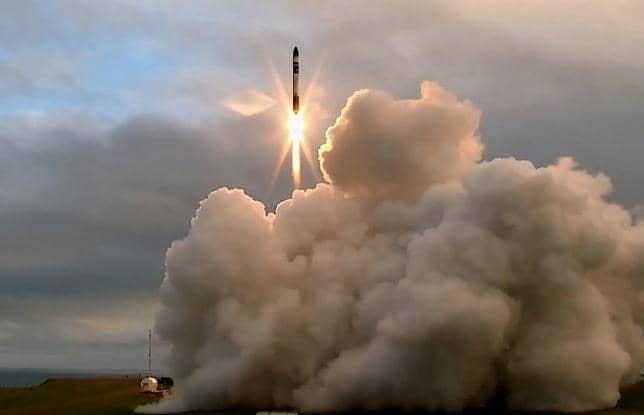Rocket Lab, A US and New Zealand-based Silicon Valley funded aerospace company has launched its first battery-powered 3D printed rocket from the remote Mahia Peninsula in New Zealand, on Thursday last week.
The race towards cheap and sustainable space travel is getting heated with many companies onboard. Rocket Lab’s first successful attempt at launching a battery-powered rocket is a significant milestone for which New Zealand was considered a very unlikely spot. The company has been preparing for the test launch for the past four years before getting the final approval from the US Federal Aviation Administration. Inclement weather caused the launch to be postponed thrice before finally happening on Thursday.
The aim of the 3D printed rocket is to find a cheaper way of getting satellites into the orbit on a regular basis. Rocket Lab founder Peter Beck explained in a statement, “Our focus with the Electron has been to develop a reliable launch vehicle that can be manufactured in high volumes – our ultimate goal is to make space accessible by providing an unprecedented frequency of launch opportunities.”
The 3D printed rocket has been named Electron and after the successful launch, the CEO Rocket Lab, Peter Beck commented, “It was a great flight. We had a great first stage burn, stage separation, second stage ignition and fairing separation. We didn’t quite reach orbit, and we’ll be investigating why, however reaching space in our first test puts us in an incredibly strong position to accelerate the commercial phase of our program, deliver our customers to orbit and make space open for business.”
The Electron rocket measures 17 meters in length and is capable of carrying a payload of 150 kg. The lightweight design allows for enough payload capacity that can deliver internet services, and provide surveillance. Rocket Lab is only a 11-year-old company and Electron is its first fully engineered rocket.
A rocket launch today costs around $50 million, but RocketLab has an aim to provide the aerospace industry with cheap and more frequent space launches, reducing the costs to as low as $5 million.
The company will conduct two more launch tests in 2017 before becoming officially commercially operational. Lockheed Martin is backing the company already, and the developments are expected to make NASA a customer as well.
The additive manufacturing method used in the fabrication of the Electron’s engine parts is called electron beam melting, that uses metal powder to make layers over layers using an electric beam. The method created parts that are high in strength but very light in weight. The battery-powered rocket also reduces weight and adds to the efficiency.
Only nine countries in the world had space launch capabilities, and with the launch of Electron from the Mahia Peninsula, New Zealand has become the tenth on the list. The government of New Zealand plans to expand the space industry by creating a specific legislation for the anticipated New Zealand Space Agency. The uncrowded airspace and low population of New Zealand make it an ideal place for future space launches.



Battery powered? How? Only the teaser title mentioned battery powered. Click-bait? Still, it was an outstanding achievement. Props to New Zealand.